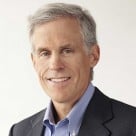Have Americans been so fat and happy for so long and become such believers in our own exceptionalism, that we can’t face hard realities? Certainly our politicians think that’s the case—we continue to hear the President’s numbing sugar-coated talk about green jobs and job training programs that will turn the unemployment rate around. Every week he’s at another factory in shirtsleeves wearing goggles. Meanwhile many of our public high schools graduate students with barely minimal functional reading and writing skill sets, and colleges pamper students with grade inflation and pay football coaches multiples of engineering and science professors.
And on the Republican side—we get the same old, same old—by cutting taxes and shrinking government we’ll stoke employment growth. One Presidential candidate—the former Minnesota governor—double downed recently calling for significant cuts in corporate and capital gains taxes which he says would increase GDP by 5%. It’s pure sophistry, numbers pulled from thin air.
Others say the problem is too much regulation—it’s the EPA’s fault for everything. Oh yeah, over-regulation led to the financial crisis, the BP disaster, last year’s mining explosion in West Virginia, and various forms of now emerging hydro-fracking pollution. If business was left to do its thing, the economy would be in high gear. We can return to the late 1960s when rivers burned and city air was a health hazard. Or go to China’s model where no can drink the water.
While the politicians pander, the economy goes nowhere fast and demand for real estate remains stuck in neutral where it will stay, I believe, for the foreseeable future no matter what the government does. The problem is the standard of living erodes for a majority of Americans, because their jobs can be done out of the country for less than we have been paying. And many of our American-based, stock market traded multinationals take full advantage downscaling U.S. operations and transferring (not just manufacturing) jobs overseas. The other major factor is technology, which eliminates the need or devalues formerly decently paying jobs—everything from secretaries to travel agents, newspaper reporters, and mailmen. Google, Facebook and Twitter aren’t exactly jobs engines. Simply, the economy isn’t producing as many jobs as we need, because companies can be more profitable by hiring fewer people here. Now will any politician say that? Of course not. That’s how our elected leaders lose their jobs—because we don’t want to hear that kind of talk.
It might be patriotic and helpful—if companies were a little less productive, and directed more profits to creating more U.S. jobs. Employees and unions need to face the obvious-- that they will be paid less and have fewer benefits—people will have to save more and live more frugally. And we have to start conserving in our daily lives—drive less and use less electricity. What’s wrong with in living in smaller homes or owning one less SUV? Whether we want to or not the global marketplace is forcing us in that direction. That’s our reality. Talking green jobs and cutting taxes won’t make any difference.
© 2025 ALM Global, LLC, All Rights Reserved. Request academic re-use from www.copyright.com. All other uses, submit a request to [email protected]. For more information visit Asset & Logo Licensing.








